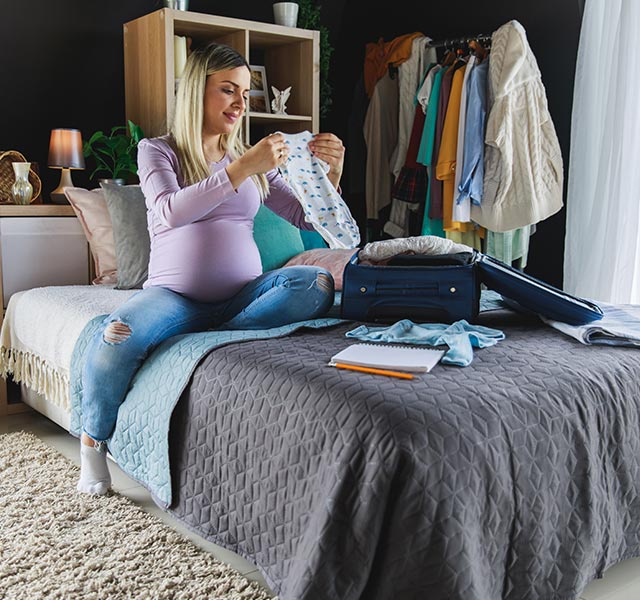So much happens during those nine months of pregnancy. Your body is changing, your baby is developing and you feel like there are a zillion things to do to prepare for the new arrival. One thing you don’t want to forget about in all of the excitement is packing a bag to bring to the hospital when you deliver.
“People often think they have so much time because their due date is still several weeks away,” says Arriane DiMuro, RN, a birthing center nurse manager at Henry Ford Health. “But people often deliver before their due dates, and there’s no downside to being prepared early.”
Even if your bag isn’t fully packed and waiting by the front door, you should at least make a hospital bag checklist by about the 30th week of pregnancy. Once you start packing a bag, leave a note on top of it listing any last-minute items you want to grab as you head to the hospital.
What To Pack In A Hospital Bag
You’ll want your hospital bag to contain all your must-have essentials (as well as some creature comforts). Also plan for whoever is supporting you during labor and your newborn.
Know that in a pinch, the hospital will likely provide many of the most essential items you’ll need during labor and delivery and until you go home. They’ll have gowns, underwear and sanitary napkins for mom, diapers and blanket for baby, basic hygiene supplies, and a cafeteria full of food. The biggest benefit of having your own bag ready to go is that you’ll have any special items to make your labor, delivery and hospital stay more enjoyable.
For mom
Essential and comfort items to have with you when you check into the hospital for labor and delivery include:

Find a Birthing Specialist
- Photo ID and insurance card
- Name and phone number of the pediatrician you’ve selected as your baby’s doctor
- Copy of your birth plan or labor partnership agreement
- Eyeglasses and contact lens supplies
- Phone and charger (don’t forget to load a playlist with your favorite music onto your phone)
- Personal toiletries (such as toothbrush and toothpaste, shampoo, lotion, lip balm, hairbrush and hair ties)
- Nightgown, robe, slippers and warm socks
- Clean clothes to go home in (choose comfortable clothes that won’t be tight on your stomach, such as sweatpants)
- Extra pairs of underwear
- Nursing bras if you plan to breastfeed
- Sanitary napkins (if you have a specific preference)
- Favorite snacks or drinks
For your support person
Depending on how your labor progresses, there may not be a good time for your support person to leave the hospital. If you know you’ll want them to stay with you for the duration, make sure they also pack a bag that includes:
- Eyeglasses and contact lens supplies
- Phone and charger (plus camera and charger if using)
- Personal toiletries
- Something to sleep in
- Sweatshirt or sweater (labor rooms are usually kept cool)
- Bathing suit or shorts to assist with labor in the shower
- Clean clothes to wear home
- Favorite snacks or drinks
- Books, magazines, games or other items to pass the time (if you have any!)
For your newborn
Your baby won’t really need anything during their stay in the hospital. Your birthing center will provide diapers, blankets and any other items your newborn might require. But before you can take your baby home, you’ll need a few key things, including:
- A going-home outfit (nothing too bulky that might interfere with securing your baby in their car seat)
- Blankets to wrap over your baby after they’re buckled into their car seat
- Hat and booties or socks
- Car seat that’s the right size for a newborn and that’s installed correctly in your car
What Not To Bring To The Hospital
Certain items are best left home when you check into the hospital. These include:
- Jewelry, large amounts of cash or other valuables
- Essential oil diffusers (other patients or staff might experience allergic reactions)
- Candles (battery-operated votives are fine)
- Medications (if you take any medications regularly, the hospital will supply them)
Reviewed by Arriane DiMuro, a birthing center nurse manager at Henry Ford Health.



